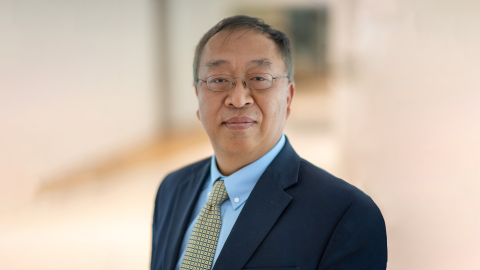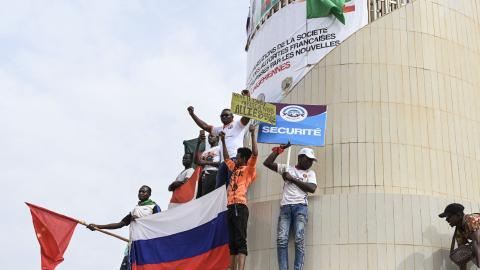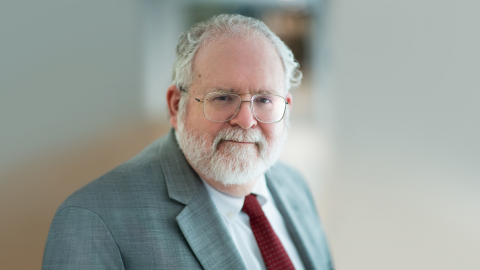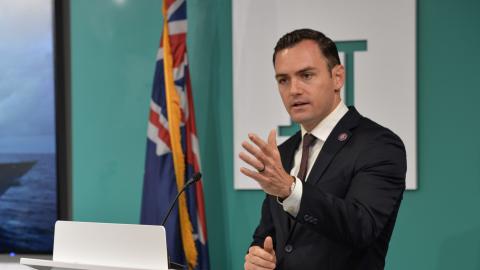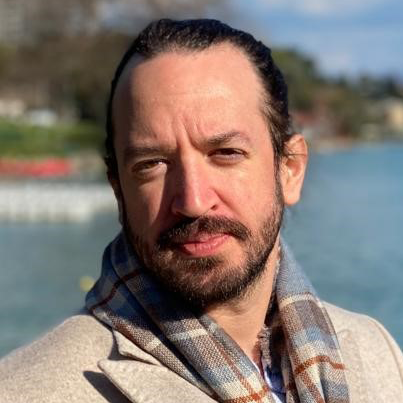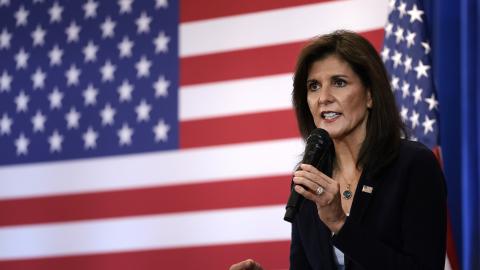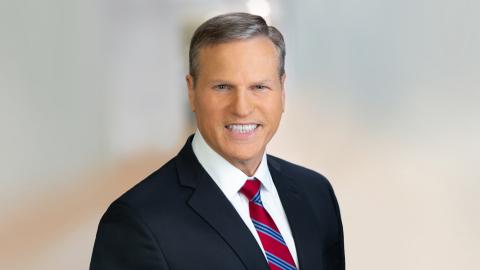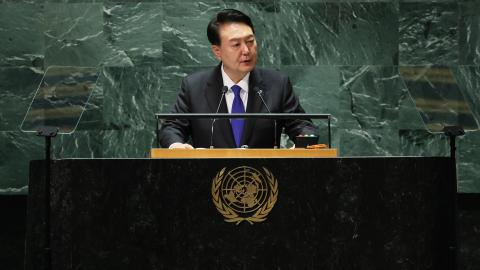- President Yoon Suk-yeol of South Korea emerges as a stalwart defender of democracy and human rights in the face of resurgent authoritarianism and technological challenges.
- Yoon's bold political activism on the global stage focuses on leveraging South Korea's technological prowess and democratic achievements to promote international norms and governance.
- Through a blend of hard power and diplomatic outreach, President Yoon strengthens South Korea's alliances, particularly with Japan, to shape a future guided by democratic values and cooperation in cutting-edge technologies.
Democracy is under assault from resurgent authoritarianism and rapid technological change. Strongmen equipped with destructive missiles and disruptive digital tools aim to revise the international order through disinformation, coercion, and force. Above all, they want absolute political control and are willing to resort to draconian means to demand obedience to centralized power. Rare is the democratic statesman willing to stand against malign and autocratic forces. Arguably more appreciated by Americans than South Koreans, President Yoon Suk-yeol is one of those leaders. Undaunted by recent political setbacks at home, he remains focused on burnishing South Korea’s international image as a torchbearer of democracy, the rule of law, and human rights.
Techno-Political Activism
South Korea’s confidence on the world stage ascended after adopting democratic reforms in the wake of the June Democracy Movement of 1987. Some leaders’ initiatives are especially noteworthy. Kim Dae-jung’s breakthroughs in inter-Korean relations highlighted the possibility of Korean reunification. His timing was crucial, coinciding with the lofty “end of history” period following the Cold War. Sadly, today Kim Jong Un is working overtime trying to erase all thoughts about unification. In the context of this essay, I would also mention Lee Myung-bak’s concept of “Global Korea.” The policy gained special currency thanks to South Korea’s soft power and advanced manufacturing. Even by the standards of President’s Kim and Lee, President Yoon’s determination for South Korea to be a “global pivotal state” reveals an unusual predilection for international political activism.
In opening the Third Summit for Democracy in March, President Yoon credited democracy for “vastly expand[ing] individual freedom and human rights,” adding, “we must take good care of this great legacy…and pass it on to future generations.” Undoubtedly animated by the impact of democratic change in South Korea during his lifetime, President Yoon exudes confidence in leveraging his nation’s achievements for the global good.
Given global trends, it is understandable why President Yoon has focused much of his political activism on setting up a new architecture to grapple with high technology. For instance, he has been quick to harness South Korea’s prowess in digital technology to promote ways to manage the pernicious problem of manipulated information. He urged leaders at the democracy summit to “create AI and digital systems to detect and combat…fake news,” and if necessary, “carry out strong and systematic anti-propaganda campaigns to collectively address them.”
Last year in Paris President Yoon proposed an international organization to help establish AI norms. A few months later in Delhi, he called on G20 leaders to play a leading role in establishing international AI norms. At the United Nations General Assembly, he again put South Korea at the vanguard of institution building, vowing to play an active role in the UN’s new High-Level Advisory Body on AI to provide a network for communication and collaboration among global experts. The same desire to drive AI global governance and norms is why South Korea decided to host the second AI Safety Summit in Seoul on 21-22 May.
South Korean technology and culture have been appreciated around the world for years. What’s different about the present moment is the degree of high-level political will for South Korea to contribute more to a rules-based order. We are not only living in “an Indo-Pacific era,” as the administration’s first regional strategy asserts; we are also living in a period of South Korean diplomatic activism. The Indo-Pacific strategy published in December 2022 establishes the foundation for greater South Korean involvement in the management of vexing challenges ranging from maritime disputes in the South China Sea to economic development everywhere from the Pacific Islands to the eastern coast of Africa.
“Defending liberal democracy” is a core element of President Yoon’s National Security Strategy. He is keen to put his country at the forefront of global governance. While promoting South Korea as a global pivotal state, he is also realistic about selectively determining where he can make a difference. He cannot transform the world on his own, but he is not waiting for others to step up to the responsibility and challenge of leadership.
Values Secured by Strength
Unique to President Yoon’s international outreach has been his simultaneous pursuit of hard power. His diplomacy is more muscular because it is backed by serious defense arrangements and capabilities. As he rightly boasted during his 2024 New Year’s address, he has upgraded ROK-U.S. ties to create a “global comprehensive strategic alliance” that is now “nuclear-based”—or at least one in which Seoul’s voice over nuclear posture is now built into the security architecture. More remarkably, he has normalized the once-neglected Korea-Japan relationship, creating a system of trilateral cooperation at Camp David that puts Seoul on an equal footing and at the vanguard of peace and prosperity across the Indo-Pacific region. Building peace through strength, President Yoon has made it clear South Korea will not be dependent on the goodwill of an adversary; that is why he is investing in an improved 3K defense system, extended deterrence, a cutting-edge defense industry, and better protected critical infrastructure and global supply chains.
The Yoon administration’s strong security posture ensures that Kim Jong-un cannot safely embark on offensive military action, despite his costly nuclear and missile buildup. Strength also allows for a principled stance over inter-Korean reciprocity, and it reminds Washington that South Korea punches above its weight. Pyongyang’s decision to eliminate all vestiges of a longstanding campaign for unification is a futile attempt to ignore South Korea’s success on the world stage. Exploiting a momentary improvement in defense ties with Vladimir Putin to elicit cool stuff, Mr. Kim knows that Xi Jinping controls the economic lifeline for North Korea. Mr. Kim may harbor delusions of a successful authoritarian wave collapsing the liberal rules-based order, the danger is that his siege mentality and unwillingness to engage in meaningful diplomacy may trigger lethal force by miscalculation.
Transcending Alliance Architecture
For all his focus on hard power and traditional alliance defense issues, President Yoon asserts South Korean power via a growing web of like-minded states and a broadening agenda of complex issues. Having already met some 100 other world leaders, Yoon Suk-yeol is enlarging South Korea’s diplomatic field of actions, while forging particularly close relations among the “spokes” of the U.S. alliance system.
Making progress with Japan is among President Yoon’s most daring attempts to forge a future for Asia shaped by Asian democracies. Independence from Japan was something Koreans earned through great travail over time. The Republic of Korea was founded on the “blood and sweat of…independence activists,” President Yoon noted on the 105th March First Independence Movement Day. Invoking the 1919 Proclamation of Korean Independence calling for a “new world,” he argued that today Japan and Korea share common values of “freedom, human rights, and the rule of law” and have become “partners in pursuit of common interests for global peace and prosperity.”
The common goal of deterring North Korean missiles provides a strong bond for Seoul and Tokyo. But President Yoon’s vision is to keep advancing the South Korea-Japan partnership in “industry, finance, and cutting-edge technologies.” Visiting Stanford University with Prime Minister Fumio Kishida last November, President Yoon touted the leading role the two countries and the United States intend to play in Quantum and digital technologies. “By jointly developing technologies and sharing achievements among the Republic of Korea, the U.S., and Japan that share common philosophies and values, we can make life freer and more prosperous…for the whole of humanity.”
Next year will mark the 60th anniversary of South Korea-Japan diplomatic normalization. Yoon and Kishida have laid the groundwork for taking bilateral cooperation to new heights and in new dimensions. China and Russia in particular are promoting a starkly different future world based on very different rules, and Seoul and Tokyo are increasingly joining up to ensure their interests and values endure. As President Yoon remarked when he and Prime Minister Kishida were receiving the John F. Kennedy Profile in Courage Award last October, “this award is a reminder of my solemn duty—a profound sense of responsibility placed upon the Republic of Korea, the United States, and Japan to promote freedom and prosperity around the world by standing together in solidarity.”
South Korea’s economic, technological, and cultural successes can be attributed to the democratic maturation of the state and society. But it has taken President Yoon’s vision to make South Korea a global pivotal state, a net security provider, and a beacon for the free world. In so doing, President Yoon is redefining his nation’s role in the world.

